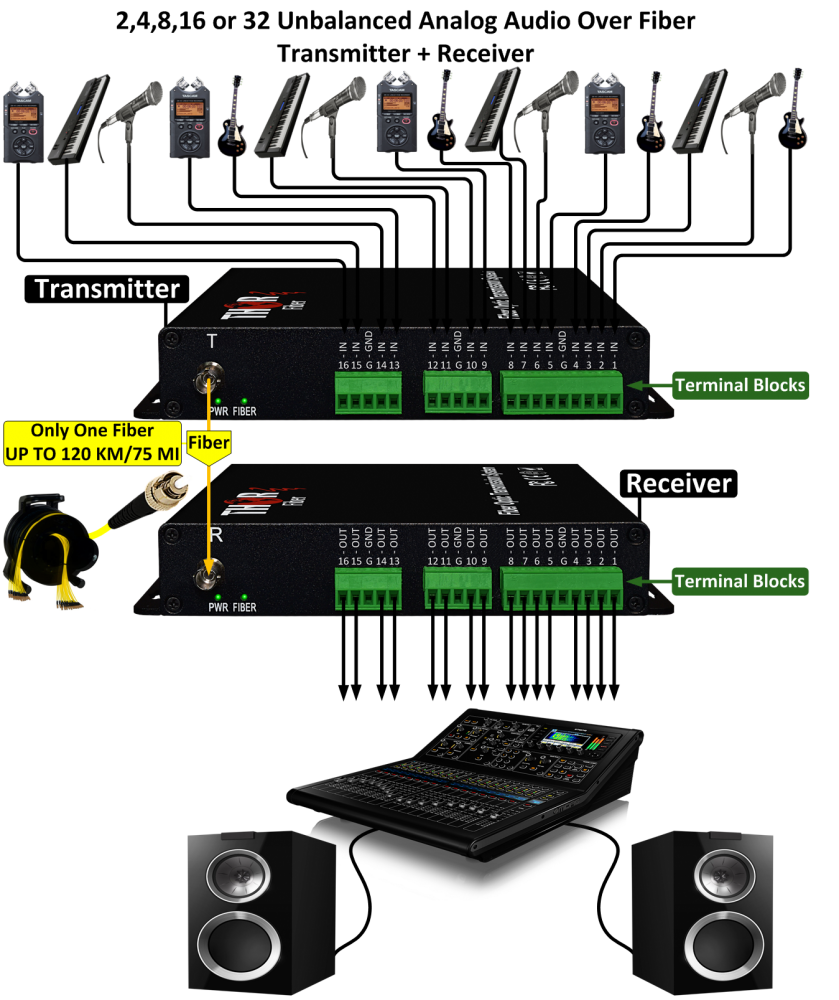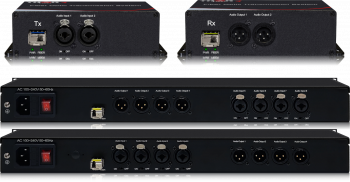Answer: So in unidirectional format we have options from 2 Audio all the way up to 32 Audio.
We also have some bidirectional options as well.
The larger issue here is that multimode should be run anywhere near a mile.
Maybe It could work for very short distances.
Maximum I think multimode could carry the signal about 2000ft; but that would be in ideal conditions with almost no loss.
Keep in mind this generally has nothing to do with the units themselves, its the fiber. The same unit that can send a signal about 2000ft on multimode can send the same signal 20km on singlemode.
We do have a 30 day return policy, should you proceed with the purchase, and after installation realize this is not something that can be remedied with hardware, but actually needs to be re-pulled with new fiber.

 ES
ES




















